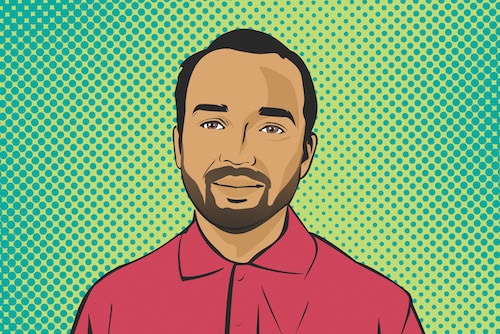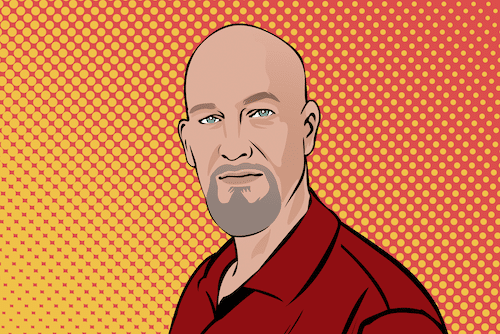Laravel
October 2024
Laravel can be a great framework for making things happen. At Coretechs, we have a deep bench in PHP. A lot of the people on the team have worked in it—in whole or in part—for their entire careers. Laravel has a full, mature, open-source content-management system, and can be used as a standalone framework or for integrating with Javascript on the frontend (whether Vue, React, Angular, or other frontend frameworks).
Coretechs writes new Laravel applications from scratch and also takes on many projects in Laravel which other teams originally developed. Given our experience, we like to advise clients about Laravel in a balanced way.
Reasons for Choosing Laravel
Laravel is a framework for building complex web applications with database integrations, APIs, and complex business logic in PHP. If the client or team is choosing to work in PHP and the project calls for a complex backend, Laravel can be the way to go.
- Security: Laravel releases new security patches on a regular basis to address common security issues. It is a dependable framework with a long-term track record, supported by an open source ecosystem and the support of legacy business and enterprise clients.
- Versatility: Laravel can be used to create almost anything, from content management tools and social networking platforms, to e-commerce sites. We often use it at Coretechs for building websites for eCommerce, health care, financial applications, and more.
- Approachable Syntax: PHP syntax is relatively easy to learn for developers, many of whom cut their teeth on much harder languages such as C/C++ or Java. Even for newer developers, Laravel has great tools and documentation for solving problems and getting things done.
- Active Development Community: Laravel has a large, active community. There are lots of great resources and tutorials available in it that make learning and developing with Laravel a good experience. Lots of major companies also build apps in Laravel , and that tends to drive long-term development and support of the core framework.
Developers’ Take
“Laravel makes it easy to build modern, secure, high-performance web applications. I have worked in it for years myself, and Coretechs has a great team for building and maintaining Laravel apps. It’s a particularly great way to build API-based applications for interfacing with Javascript, whether it’s React, Angular, or my own favorite frontend toolkit, Vue.JS.”

Arthur
Laravel /PHP Developer
“Laravel is easy to write. It has a CMS for working with PHP using the MVC pattern, and templating or building out api endpoints in Laravel is an easy and reliable process. Sometimes people build something out in custom PHP, and it is often harder to extend or maintain. Laravel has a very opinionated way of building an application though, which has its benefits.”

Vinod
Laravel /PHP Developer
“What’s great about developing in Laravel is that it has lots of libraries and documentation, and a great community. That makes it easy to get things done.”

Jonathan
Laravel /PHP Developer
Caveat Emptor: Buyer Beware
There are many reasons to choose Laravel as a framework, but we always try to give a balanced view. While Laravel has great libraries and support, it also has a very short release schedule. That means that there will be a fast pace for patching, or that a Laravel app can become unsupported very quickly if unmanaged. Also, while there are available admin panels for Laravel , it does not have one by default the way Python’s Django framework does. So here are some things to consider for anyone planning to spin up a new app in Laravel, or considering switching from a legacy Laravel application to a different framework.
- Short Release Schedule: Laravel does a new major version every two years, and offers only 18 months of bug fix support and two years of security support. That means two years after a major release, software written in Laravel is unsupported. This means owners of Laravel apps need to plan for a very regular schedule for patching and maintenance or deal with decreased security and compatibility as their app becomes unsupported.
- No Default Admin Panel: An admin panel is a handy way for clients, project managers, and non-developers to manage data and make new entries. It is often a great way to interact with an app’s data without having to get into the database or into the code. While there is an admin panel built and maintained by Laravel , it is not free or standard.
- Unmaintained Third Party Libraries: Third party libraries may have dependencies that go unsupported. When this happens, the process is opaque and they may fall out of support without sufficient warning, leaving a team scrambling to fix errors.
- Patching: Coretechs focuses heavily on keeping up with the latest patching schedule, but with Laravel expect to allocate more time to maintenace. It can be unclear whether Laravel updates are critical for security when compared with other frameworks such as .NET or Django.
Developers’ Take:
“Admin panels are great because they often make it easy for less technical people to add data to an app without having to interact with the database directly. Laravel does not have an admin panel by default, which would certainly make things easier.”

Arthur
Laravel /PHP Developer
“Laravel definitely has some downsides. The third party libraries often depend on each other, and when they go out of support or fail, it is not alway clear and can make patching and maintaining a complex app difficult. The short release and support cycle requires more maintenance.”
Vinod, Laravel/PHP Developer

Vinod
Laravel /PHP Developer

